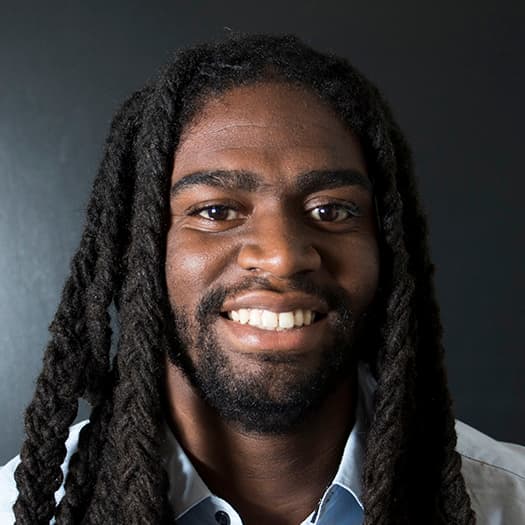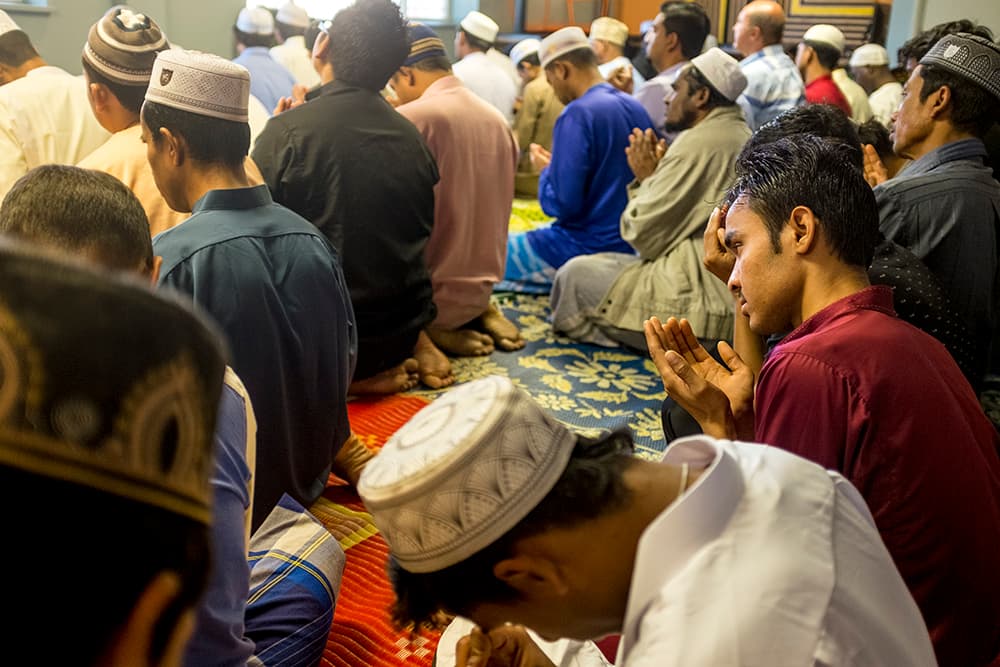Last week, Colorado had its first ever Muslim Voter Registration day in conjunction with a broader national movement to get the religious group more politically active.
According to Iman Jodeh, public relations director for the Colorado Muslim Society, in less than a week, organizers in Colorado were able to get 9 mosques to participate. She said they were happy with the results, registering 70 people overall on the day.
Mosque leaders, for the most part, were super into the idea and according to Maytham Alshadood, executive director of immigrant and refugee advocacy group DRIVE Colorado, many imams focused their khutbahs -- sermons -- around the importance of civic engagement.
Alshadood believes now is a more critical time than ever for Muslims to be politically aware and active.
“Many of us have been resettled in the United States for decades and have been comfortably living here without having to engage politically,” he said. “Right now that reality has been disrupted we have been actively under attack for the last three to five years and it is critical that we exercise every right we have to protect ourselves, our friends, our neighbors.”
Jodeh echoed Alshadood, saying she thinks it’s essential the Muslim community in Colorado embrace their role as a political force in the state of Colorado as their numbers are growing.
"The Muslim community in Colorado is growing exponentially, and we are no longer going to stand by and be a photo op for candidates or incumbents," she said. "We have a voice, we have something to say, and we will not continue to allow politicians to come into the mosque take their shoes off and check that box,” said Jodeh.
She also believes civic engagement is at the core of the Muslim faith.
"There are sayings by the prophet, peace be upon him, that encourage Muslims to be active participants in our society and oftentimes that translates into voting, showing up in town halls, and participating in interfaith dialogue," she said.
It can be tough to get some immigrants in particular to engage.
Some may view political activity as a recipe for hardship, Alshadood said.
"It takes a lot for someone to get displaced from their hometown, usually their escaping death and to have all that burden, all that experience attached to getting involved politically, you might want to avoid anything that might sound remotely political," he said.
"Especially when you come to a country you didn't have an attachment to before resettlement. Especially in immigrant and refugee communities you usually have to have been oppressed by your own government, not because you’re politically active but because you belong to the wrong sect, you pray to a different god or you’re from a different tribe."
This isn’t Alshadood’s first time trying to encourage Muslim residents to register to vote and get more politically active, and he believes his experiences allowed him to learn how to better approach these efforts, culminating with the registration efforts last Saturday.
One logistical issue they learned was important was the actual timing of the event, as the Friday prayers happen in the middle of the day and many congregation members have to rush back to work right after the service concludes. Another lesson they observed was that it helps to have familiar people to those in the mosque register people to vote. “It helps to have a non-foreign person to you when you're being talked to about a foreign concept,” Alshadood said.













